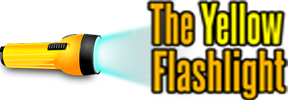Brand Guardians presents a practical guide to deploying AI agents that ensure consistent logos, voice, and layouts across every platform. Learn how AI brand governance, design consistency, and AI agents work together to automate checks, apply style rules, and fix deviations before they reach customers. This friendly primer shows core concepts, workflows, and implementation steps for teams of any size.
Defining the Brand Guardians Framework — AI brand governance

Brand guardians act as systems and roles that protect a brand identity at scale.
They combine human judgment with automation to keep assets aligned.
Deloitte forecasts 25% of GenAI adopters will deploy AI agents by 2025.
That shift matters for graphic design teams delivering consistent work.
Core components
- visual identity guideline repository: centralized, machine-readable masters like logos, color tokens, typography rules, and voice rubrics.
- Policy engine: rule sets that codify spacing, layout constraints, accessibility, and tone requirements.
- AI agents automation processes detect deviations, propose fixes, and apply approved adjustments.
- Audit and telemetry: logs, dashboards, and reports for compliance and learning.
Implementation considerations
- Start by converting brand rules into explicit, testable assertions to enable repeatable checks.
- Prioritize high-impact assets such as hero images, email templates, landing pages, and photo booth templates.
- Define clear escalation paths when automation cannot auto-resolve exceptions. Keep humans in the creative process and aligned to the branding strategy.
Document assets and link source files to relevant design tools. Tag provenance for digital artwork to speed audits.
A practical playbook for AI brand governance uses tests, telemetry, and human review.
These measures lock in design consistency across teams and platforms.
See our automated design QA article for workflow examples.
Building AI Agents for Visual and Voice Enforcement
In 2024, enterprise adoption of AI for brand compliance rose noticeably. Teams now expect automated checks across channels.
Designers working in graphic design and product teams need clear guardrails. A practical playbook helps enforce tone, layout, and identity. This fuels better AI brand governance across teams and tools.
AI brand governance playbook
Build modular AI agents as services. Split them into ingestion, analysis, decision, and remediation modules. Keep each module small. That makes updates safe and fast.
- logos agent — Ingest reads image and metadata.
- Analyze uses CV to check color fidelity, clearspace, and aspect ratio.
- Decide compares results to policy and rates severity.
- Remediate auto-crops or flags assets for designers.
Voice agents transcribe and run semantic checks. They score adherence and suggest inline rewrites. Use them to keep brand tone steady and to improve design consistency across messages.
- Transcribe text or audio.
- Compare against tone profiles and banned phrases.
- Return scores and sample rewrites.
For auditability, log decisions and reasoning. Let humans override rules. Combine continuous learning with gated updates. Tie checks into asset hubs that host digital artwork and photo booth templates. Learn from real-world agent workflows when designing integrations. Small rules help preserve your visual identity while speeding the creative process. Track results so your branding strategy stays aligned. Use clear APIs so design teams can plug in their preferred design tools without breaking enforcement.
AI agents in Your Tech Stack

graphic design teams need simple, embedded guards. Start by placing checks where content is born. A recent industry write-up found 73% of marketers say AI helps deliver personalized experiences. Embed enforcement in authoring, staging, and runtime to keep tone tight.
Authoring and design consistency
- AI agents give real-time feedback inside editors. They suggest tokens and flag copy tone drift.
- Authoring tools link to style APIs and design tools variables for consistent layouts.
- Prepublish checks block or flag misuse of logos and broken layout tokens.
Technical patterns
- API-first checks return pass/fail and remediation hints for assets.
- Webhooks trigger agents when assets change, enabling quick audits.
- Edge enforcement runs lightweight rules at CDN or client; see our notes on edge automations for designers.
Operational tips
- Map owners and SLAs per domain to scale AI brand governance.
- Version guidelines and allow time-bound exceptions for campaigns to preserve design consistency.
- Track compliance rate, time to remediation, and false positives to tune agents.
Monitoring Scaling and Responsible Governance — AI brand governance
graphic design teams need clear metrics to build trust. Track compliance percentages and manual override frequency. Measure error reduction and time saved in reviews. Use these numbers to show progress in AI brand governance and to surface weak rules.
AI agents can flag mismatched assets at scale. Let them auto-fix low-risk layout issues. Route ambiguous cases to humans. This preserves designer confidence and improves design consistency over time.
Scaling strategies
- Automate low-risk fixes and human review for ambiguous cases.
- Use sampling and active learning to retrain models on real exceptions.
- Automate canary updates for policy or model changes to limit impact.
Ethics and guardrails
- Ensure diverse training samples to avoid bias in voice or imagery checks.
- Maintain transparent logs so teams understand why an asset was changed. For hands-on monitoring, see our realtime brand audits guide.
- Provide designers a fast override path with recorded justification.
Protecting visual identity and consistent logos is a governance priority. Keep model retraining part of the design tools and review loop. Track manual overrides and watch review times fall. That data drives better policy and stronger long-term design consistency.
Final words
Adopting Brand Guardians helps teams keep brand identity intact while scaling creative outputs. By blending human rules with AI agents and robust monitoring you gain faster approvals fewer errors and stronger customer trust. Start small with critical assets iterate on enforcement rules and prioritize clear governance for sustained design consistency and scalable AI brand governance across your entire stack.
